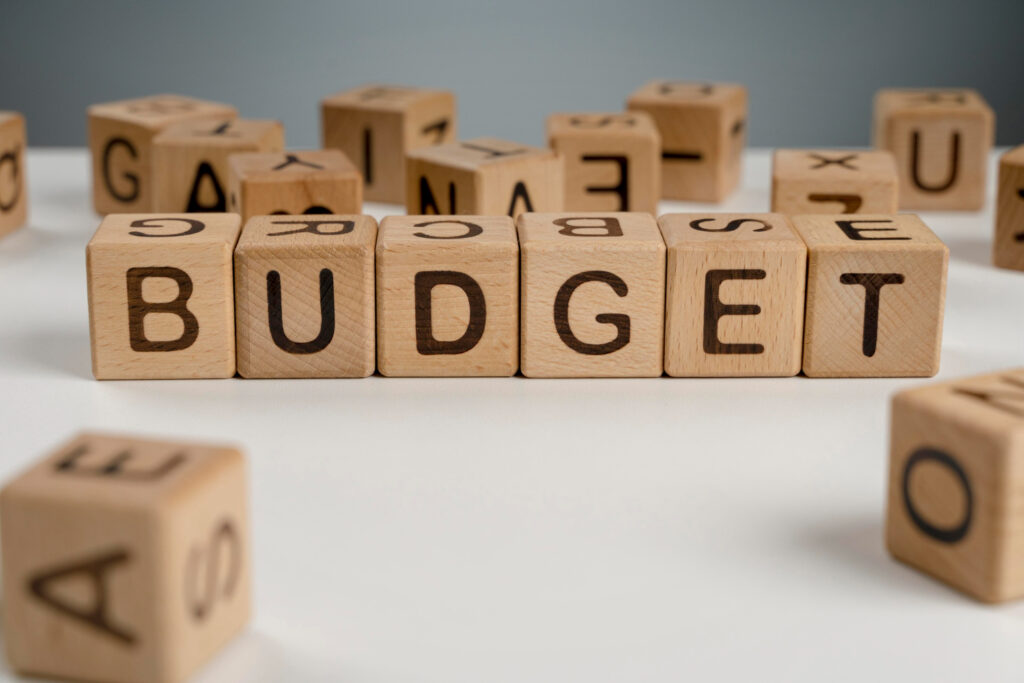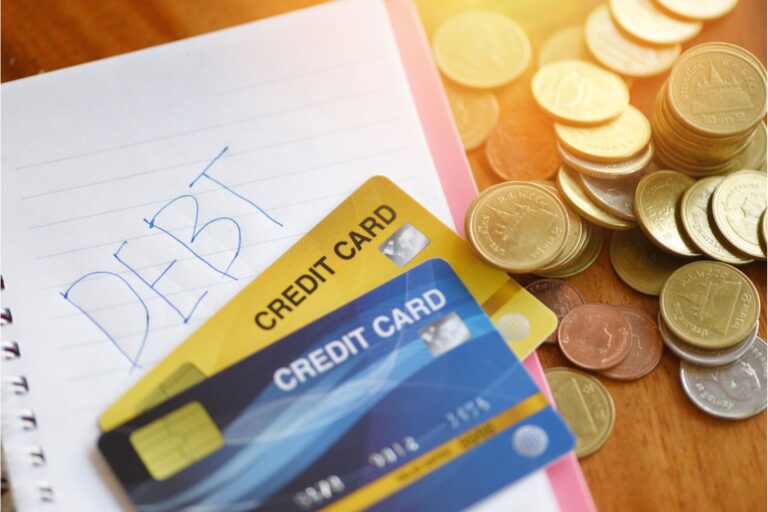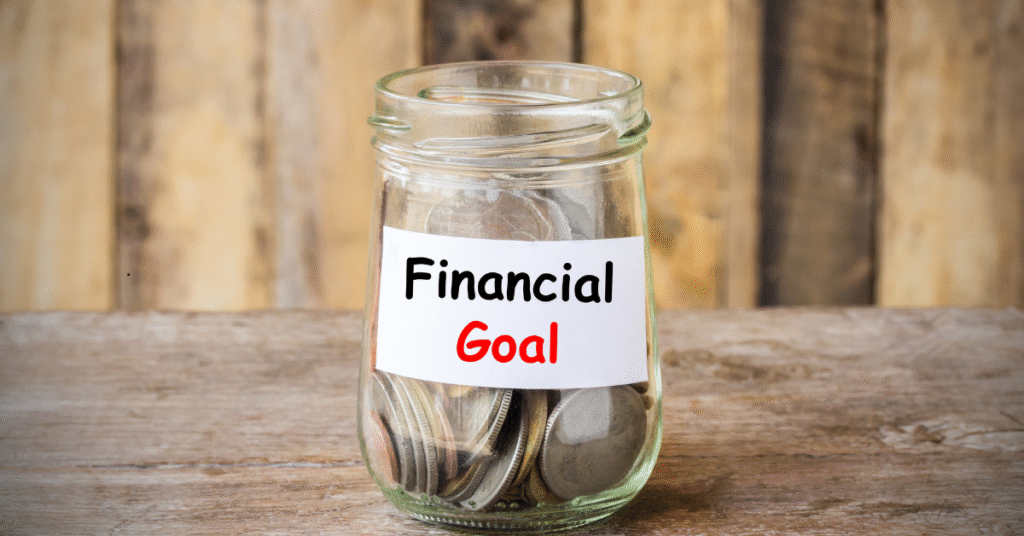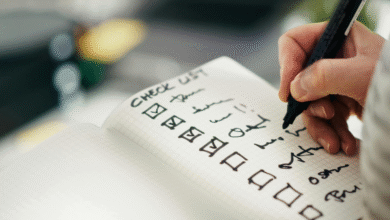10 Things To Do On Sunday For Your Finances

Sunday morning. You’re probably lounging in your PJs, binge-watching that series everyone’s been raving about, or catching up on sleep. And honestly? You deserve it. But here’s the thing: what if I told you that spending just a couple of hours on Sunday could literally transform your financial life?
I know, I know. The last thing you want to hear on your sacred day off is someone telling you to “be productive.” But trust me on this one. I’ve been managing my finances for years (yes, I have a master’s degree in finance, but more importantly, I’ve made every financial mistake in the book :/ ), and I’ve discovered that Sundays are pure gold for getting your money right.
You’re not working. Your boss isn’t breathing down your neck. Your brain isn’t fried from endless meetings. It’s just you, your coffee, and the perfect opportunity to set yourself up for financial success. Ready to make your Sundays count? Let’s get into it.
How To Improve Your Finances On A Sunday
Look, improving your finances doesn’t require some complicated Wall Street strategy or a PhD in economics. On a Sunday morning, you can make serious progress by simply identifying what’s going wrong with your money and fixing it.
Check how much you owe on your credit cards. Look at your monthly budget and see if you’ve been spending like you’re a Kardashian (when you’re definitely not).
The beauty of Sunday is that you actually have time to think without distractions. You can sit down, pull up your banking app, and have an honest conversation with yourself about where your money is really going.
Reasons Why You Should Work On Your Finances On A Sunday
Still not convinced? Let me break down why Sunday is literally the best day to tackle your finances.
1. Sundays Are Not Choked Up With Activities Like Business Days
Here’s what I love most about Sundays: nobody expects anything from you. Your coworkers aren’t sending urgent emails. Your phone isn’t buzzing with work stuff. There’s no commute, no meetings, no deadlines breathing down your neck.
This freedom is exactly what you need to focus on your money. Unlike Monday through Friday, when you’re running on fumes and just trying to survive, Sunday gives you mental space. You can actually think clearly about your financial decisions without feeling rushed or stressed.
I usually spend 2-3 hours on Sunday morning reviewing my finances, and it never feels like work. Why? Because I’m doing it on my terms, at my pace, probably in my pyjamas with good coffee. That’s the kind of environment where smart financial decisions happen.
2. Opportunity To Focus
When was the last time you actually focused on something for more than 15 minutes without getting interrupted? Probably not recently, right?
Sunday gives you that rare gift of sustained focus. You can dive into your bank statements (yes, the boring stuff nobody ever reads) and actually understand where your money went last month. You can spend quality time reviewing your budget without someone knocking on your door or your phone exploding with notifications.
FYI, this focused time is when you’ll catch those sneaky subscriptions you forgot about. You know the ones, that streaming service you used once six months ago, the gym membership you swore you’d use but never did, the premium app subscription that auto-renewed. These little money leaks add up fast, and Sunday is when you’ll spot them.
3. Having Your Partner Present
If you’re in a relationship, Sunday is probably the only day you’re both home and awake at the same time (seriously, adulting is exhausting). This makes it perfect for having those important money conversations.
Financial decisions shouldn’t be made in isolation when you’re sharing your life and your bills with someone. You can’t be meal prepping and budgeting while your partner is out there treating the credit card like it’s Monopoly money. That’s a recipe for disaster and probably some heated arguments.
Sunday gives you both the time and headspace to discuss money goals together. Want to save for a vacation? Need to cut expenses? Thinking about investing? These conversations flow better when you’re both relaxed and not stressed from work.
10 Things To Do On Sunday For Your Finances
Alright, enough theory. Let’s get into the actual stuff you should be doing every Sunday to level up your financial game.
1. Review Your Monthly Budget

Real talk, if you don’t have a budget, you’re basically driving with your eyes closed. You might get somewhere, but it probably won’t be where you wanted to go.
Your budget is your financial roadmap. It shows you how much money is coming in, where it’s going out, and most importantly, whether you’re living within your means or setting yourself up for disaster.
Every Sunday, I pull up my budget and compare it to reality. Did I actually stick to my grocery budget, or did those “quick trips” to Whole Foods destroy it? Am I on track with my savings goals? Are there categories where I consistently overspend?
Here’s what to check:
- Income vs. expenses: Make sure more money is coming in than going out (revolutionary concept, I know)
- Spending categories: Identify where you went over budget
- Savings rate: Are you actually saving, or just planning to save?
- Upcoming large expenses: Birthdays, bills, or anything that might wreck your budget
The beauty of weekly reviews is that you catch problems early. If you overspent on dining out this week, you can adjust before it becomes a monthly disaster. Think of it as financial damage control, but way less dramatic.
2. Meal Prep
I’m going to be honest, meal prep changed my financial life more than any investment strategy ever could. Sounds dramatic? Let me explain.
Eating out is a budget killer. That $15 lunch doesn’t seem like much, but five times a week? That’s $300 a month. Over a year? We’re talking $3,600 on mediocre sandwiches and sad salads. Imagine what you could do with that money instead.
Sunday meal prep means:
- Cooking 3-4 days’ worth of meals while you have energy
- Storing everything in containers so you just grab and go
- Actually saving hundreds of dollars every month
- Eating healthier because you’re not making food decisions when you’re hangry
I usually spend about 2-3 hours on Sunday cooking. I’ll make a big batch of protein (chicken, beef, whatever), roast some vegetables, cook rice or quinoa, and portion everything out. Monday through Thursday, I don’t have to think about food. It’s already done.
Tools like Mealime or Paprika Recipe Manager can help you plan meals based on what’s on sale, reducing your grocery bill even more. Smart, right?
3. Track Your Spending
Ever get to the end of the month and wonder where all your money went? Like, you swear you were being responsible, but somehow your account is looking sadder than expected?
That’s why tracking your spending is crucial. You need to know where every dollar is going, not because you’re obsessed with money, but because awareness creates change.
I use my credit card for almost everything (those cashback rewards add up!), which makes tracking easy. Every Sunday, I log into my account and review the past week’s transactions. This takes maybe 15-20 minutes, and it’s eye-opening every single time.
What to look for:
- Impulse purchases: That thing you bought at 2 AM that seemed like a great idea
- Subscription charges: Services you forgot existed
- Pattern spending: Do you always overspend on weekends? After stressful days?
- Unnecessary expenses: Coffee shops, convenience store runs, delivery fees
Apps like Mint or YNAB (You Need A Budget) can automate this tracking. They connect to your accounts and categorise spending automatically. Game-changer, IMO.
4. Schedule Bill Payments

Nothing ruins your month quite like a late payment fee. Or worse, a hit to your credit score because you forgot to pay something on time.
Sunday is perfect for scheduling all your upcoming bills. Pull out your calendar (I use Google Calendar because it’s free and sends reminders), and mark down everything due that week.
Bills to schedule:
- Credit card payments (never pay just the minimum, by the way)
- Utilities, electricity, water, and internet
- Subscriptions and memberships
- Loan payments, student loans, car payments, mortgage payments
- Insurance premiums
Most companies let you set up automatic payments, which is brilliant if you’re forgetful like me. But I still like reviewing bills before they’re paid. Sometimes there are errors or charges for services you didn’t use. Paying attention saves money.
5. Restock Essentials
There’s nothing worse than Monday morning panic when you realise you’re out of something essential. Don’t have toothpaste. No coffee (the horror!). No toilet paper. These little emergencies force you into those expensive convenience store runs where you pay triple what things actually cost.
Sunday shopping prevents this chaos. I make a list of everything running low and hit the store once. One trip. No stress. No paying $8 for toothpaste at the gas station at 7 AM.
Essential items to check:
- Toiletries: Toilet paper, toothpaste, soap, shampoo, deodorant
- Kitchen supplies: Dish soap, sponges, garbage bags, paper towels, coffee, filters
- Cleaning products: All-purpose cleaner, laundry detergent, air freshener
- Medicine cabinet: Pain relievers, cold medicine, vitamins, first aid supplies
- Pet supplies: Food, litter, whatever your furry friend needs
Pro tip: Buy in bulk when things are on sale. Toilet paper never expires, and having a backup supply means you’re never paying premium “emergency prices.” Stores like Costco or Sam’s Club are perfect for this.
6. Check Your Bank Statements
Okay, I know this sounds boring. Nobody gets excited about bank statements. But hear me out, this 10-minute task can save you hundreds of dollars.
Your bank statement tells you the truth about your spending. Not what you think you spent, not what you planned to spend, but what you actually spent. And sometimes that truth is uncomfortable.
What to look for:
- Unauthorised charges: Fraud happens, and catching it early matters
- Recurring subscriptions: Services charging you that you forgot about
- Bank fees: Overdraft fees, maintenance fees, ATM fees, you shouldn’t be paying
- Spending patterns: Are you shopping more on weekends? Stress-spending during the week?
I once discovered I was being charged for a music streaming service I’d cancelled six months earlier. They kept billing me, and I hadn’t noticed because I never checked my statements. That’s $60 down the drain that I could’ve saved. Don’t be like past me.
If you spot anything weird or unauthorised, contact your bank immediately. Most banks refund fraudulent charges if you catch them quickly. Waiting too long? You might be stuck with the bill.
7. Create And Review Your Weekly To-Do List
Ever ended a week feeling like you accomplished nothing? Like the days just… disappeared? That’s what happens without a plan.
Sunday evening is when I sit down and create my to-do list for the week. This isn’t just random tasks; it’s a strategic plan that includes work responsibilities, personal errands, financial tasks, and life admin stuff that always gets pushed to “later.”
Your financial to-do list might include:
- Transfer money to a savings account
- Call the insurance company about that overcharge
- Research investment options
- Schedule a meeting with a financial advisor
- Update retirement contributions
- Pay quarterly estimated taxes (if you’re self-employed)
I use Todoist or the simple “To Do List” app on my phone. The app sends me reminders so I don’t forget important tasks. Because let’s be real, if it’s not written down, it’s probably not getting done.
8. Set And Track Goals

Goals without tracking are just wishes. Pretty, motivational wishes that usually don’t come true.
Every Sunday, I review my financial goals and check my progress. Are my savings growing? Am I on track to pay off debt by my target date? Did I stick to my “no eating out” goal? These check-ins keep me accountable.
Financial goals to track:
- Emergency fund: Build up 3-6 months of expenses
- Debt payoff: Credit cards, student loans, car payments
- Savings targets: Down payment, vacation fund, retirement
- Income growth: Side hustle earnings, raises, promotions
- Net worth: Your total assets minus debts
I like using spreadsheets for this (yeah, I’m that person), but some apps make it prettier and easier. Personal Capital tracks your entire financial picture in one place, showing your net worth and investment performance.
And hey, if you didn’t hit last week’s goals? Roll them forward. Life happens. The point isn’t perfection, it’s progress.
9. Read A Personal Finance Book
Knowledge is the best investment you’ll ever make. Period.
I’m not saying you need to read an entire book every Sunday (though kudos if you do). Even reading one chapter expands your financial understanding and gives you new strategies to try.
Personal finance books teach you things school never did: how to invest, how to pay off debt strategically, how to negotiate a salary, and how to actually retire comfortably. This stuff is life-changing.
Some books are worth your time:
- “The Total Money Makeover” by Dave Ramsey, debt elimination strategies
- “Rich Dad Poor Dad” by Robert Kiyosaki, mindset shifts about money
- “The Simple Path to Wealth” by JL Collins, investing made simple
- “Your Money or Your Life” by Vicki Robin, a financial independence blueprint
- “I Will Teach You to Be Rich” by Ramit Sethi, a practical personal finance book
Spending 30-45 minutes reading on Sunday morning, with your coffee, in your comfy spot? That’s not work. That’s investing in yourself. And unlike stocks, this investment is guaranteed to pay off.
10. Tidy Your Living Space
Wait, what does cleaning have to do with finances? Everything, actually.
A cluttered space creates a cluttered mind. When your environment is chaotic, your financial decisions tend to be too. Plus, a clean space helps you find important documents (like tax forms or bills) instead of paying late fees because you lost something in the mess.
I work from home, and I cannot function in chaos. When my desk is cluttered or my kitchen is a disaster, my productivity tanks. I make worse decisions. I feel stressed, which leads to stress spending (online shopping at midnight, anyone?).
Sunday cleaning routine for better finances:
- Organise financial documents: Bills, statements, receipts in one place
- Clean your workspace: Whether home office or designated work area
- Tidy high-traffic areas: Kitchen, living room, bedroom
- Do laundry: Start the week with clean clothes (saves money on dry cleaning or emergency purchases)
- Meal prep space: A Clean kitchen makes Sunday cooking easier
A tidy space also prevents waste. When your fridge is organised, you see what food needs to be used before it spoils. When your closet is neat, you don’t buy duplicates of things you already own. Small savings, but they add up.
Final Thoughts
I know, Sunday is sacred. It’s your one day to slow down, relax, and escape responsibilities. The last thing you want is another task demanding your attention.
But spending just a little time on your finances each Sunday can save you from massive stress later. Starting the week with a plan, tidy space, and organised money gives you peace that sleeping in can’t.
So start small, pick three Sunday money habits and stick with them. As they become routine, add more. Your future self, the calm one with savings, little debt, and no money panic, will be so glad you did. 🙂








